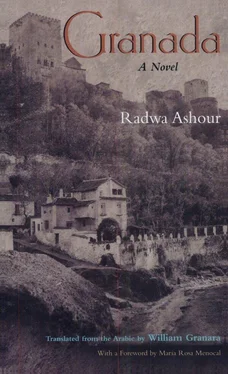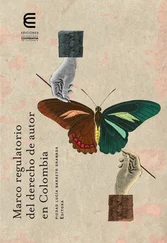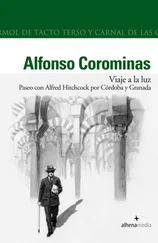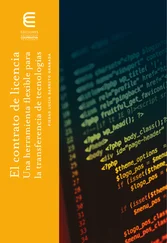Radwa Ashour - Granada
Здесь есть возможность читать онлайн «Radwa Ashour - Granada» весь текст электронной книги совершенно бесплатно (целиком полную версию без сокращений). В некоторых случаях можно слушать аудио, скачать через торрент в формате fb2 и присутствует краткое содержание. Год выпуска: 2003, ISBN: 2003, Издательство: Syracuse University Press, Жанр: Современная проза, Историческая проза, на английском языке. Описание произведения, (предисловие) а так же отзывы посетителей доступны на портале библиотеки ЛибКат.
- Название:Granada
- Автор:
- Издательство:Syracuse University Press
- Жанр:
- Год:2003
- ISBN:9780815607656
- Рейтинг книги:5 / 5. Голосов: 1
-
Избранное:Добавить в избранное
- Отзывы:
-
Ваша оценка:
- 100
- 1
- 2
- 3
- 4
- 5
Granada: краткое содержание, описание и аннотация
Предлагаем к чтению аннотацию, описание, краткое содержание или предисловие (зависит от того, что написал сам автор книги «Granada»). Если вы не нашли необходимую информацию о книге — напишите в комментариях, мы постараемся отыскать её.
Granada — читать онлайн бесплатно полную книгу (весь текст) целиком
Ниже представлен текст книги, разбитый по страницам. Система сохранения места последней прочитанной страницы, позволяет с удобством читать онлайн бесплатно книгу «Granada», без необходимости каждый раз заново искать на чём Вы остановились. Поставьте закладку, и сможете в любой момент перейти на страницу, на которой закончили чтение.
Интервал:
Закладка:
“What do you want?”
“What’s your name?”
She was unable to run away this time. One of them put his arm around her while the other took hold of her braid and twirled it like rope around his fist. She cried out for help, and the two started to hit her. She yelled with all her might until four young men, hearing her screams, rushed toward her. Though the Castilians saw them they continued to slap and kick the girl so violently that she fell to the ground unconscious.
“That’s Velasco de Barrionuevo, the police commissioner.”
“And who’s the other one?”
“That’s Salicio, the cardinal’s servant.”
The fact that the four youths knew the Castilians made them all the more furious, and soon a brawl erupted, with fists, heads, and feet pounding each other. While two of the youths remained to punish the Castilian assailants, the other two carried the girl to the nearest house, not knowing whether she was dead or alive. Back on the street, one of the youths shouted that the bastard Salicio was getting away. His friend ran after him and they both quickly disappeared. The one who had stayed took such a punch from Barrionuevo that he slipped and lost his balance, allowing the Castilian to escape. He ran after him and just at the moment when he was about to grab hold of him at the entrance of the quarter, someone appeared at a window and threw a rock, hitting Barrionuevo on the head and killing him instantly.
Within hours the news spread like wildfire throughout Albaicin, and with it the pent-up feelings of anger were unleashed. “What shall we do?” “Lock the gates of the quarter.” The men spread out in every direction and locked the gates with their massive iron bolts. Behind the gates and walls they set up barricades of wood, iron, and even their own bodies. They blocked off all the gates except the one from which a group of young men left to go to the cardinal’s palace near Alhambra. From the Bunoud Gate a throng of people gushed out toward the old casbah and crossed the Darro in a state of extreme agitation. The profound sadness that had weighed heavily on their shoulders, heads, and hearts now carried them. They mounted their dejected spirits like a stallion, with their backs straightened, and their heads held high. Their eyes glimmered and their feet compelled its spurs as this dejection turned stallion broke away, unbridled, and exploded like a canon.
The people of Albaicin stayed awake that night in the security of God’s divine light that illuminated their path with a full moon ablaze in the sky. In the houses the women lit the stoves and ovens. They turned the hand mills and kneaded the dough, sprinkling it with drops of water and pinches of salt. They rubbed, rolled, spread it out, and baked it. They layered the bread into baskets that the children hoisted on the heads and marched in step behind the delicious aromas toward the men standing guard behind the barricades.
The blacksmiths also passed the night working away. They fanned the bellows, hammered, welded, and forged, repairing what time had eroded, resolved to repair it all on that particular night. They brought out their grandfathers’ swords, daggers, and knives, and wiping off the dust, they cleaned and polished all that was still usable. They sent the rest to the ironsmiths to repair a broken handle or a warped blade. The entire quarter of Albaicin stayed awake as though it were the night before the first day of Ramadan when all the streets come alive with children running and shouting and the grown-ups animated in conversation, busily working as the candles and lanterns shimmer in the houses and the eyes of the people glisten as the day gives way to the night. That particular night, just before daybreak, the town crier came out and announced that the Albaicin Mosque was open to all those who wished to perform the dawn prayers, and that whosoever wished to participate in leading the community in running its affairs would be wise to make his way there to pray.
They didn’t wait for the call to prayers. Everybody appeared, religious scholars, teachers, merchants, craftsmen, old-time soldiers, and hairless young boys. They congregated at the square adjacent to the mosque. They talked amongst themselves, some standing or strolling about, others sitting on the ground. Then the muezzin’s voice rang out with a strong resonance, and the multitude entered the mosque. After they formed lines, the imam stood in front and they began their prayers. The imam wasn’t one of the usual prayer leaders of the mosque, not one of those senior jurists who packed their bags and fled the city only a few days after the treaty was signed. This time the imam was an elderly carpenter known to only a handful of the congregation. Upon completion of the prayers, he addressed the crowd.
“I was asked to lead the prayers here at Albaicin Mosque after God restored it to us.”
Choking with tears, he cleared his throat and continued: “This is a great honor for me, one I wish I truly deserved. O, people of Granada and Albaicin, this is our city, for better or worse. We must resolve today to work together and put our affairs in order, with sound planning and judicious counsel. For failing to do so will lead us to drink from the cup of bitterness and live a life of agony until the day we die. So, what shall it be?”
Several moments of silence passed before the people stood up and formed a tight-knit circle so that each one could see everyone else as well as the imam. They huddled in conversation from the time the dawn prayers finished until the noon prayers began. Back home Umm Hasan was pacing frantically like a caged animal, while Umm Jaafar tried to calm her with no success.
“He went out to perform the dawn prayers and he’s late. He usually comes right back, and if he’s late its not more than an hour or two. Where could he have gone?”
All sorts of images ran through her head. She supposed that one thing happened and then suddenly thought of something else as being more likely. She wondered if he ran off to join the young men behind the barricades. If this was in fact what happened, then how could she bring him back? Should she go and look for him at the Fahs al-Lawz Gate to the north, or the Qashtar Gate toward the south? She wondered whether to go east to the Wadi al-Ulia Gate or to the Elvira Gate in the west. Had her son lost his head and left from the Bunoud Gate with the others and gone to form a blockade around the cardinal’s residence? She sobbed uncontrollably and repeated over and over again that her heart was telling her something bad had happened to him, and that a mother’s heart never lies. Neither Umm Jaafar nor Saleema could say anything reassuring to stop her from crying.
When Hasan finally came home, his rosy cheeks, beaming smile, and animated motions mirrored the joy he felt. His mother leaped up and greeted him as though he had just returned from a long journey. He was totally oblivious to her teary face and the emotional excitement of her greeting. In a loud, resonating voice, he announced, “Today, at the Albaicin Mosque, a government independent of Castile was formed, and we elected forty men to take charge of our affairs and of all of Albaicin.”
Umm Hasan was so distracted with worry over her son’s absence and her relief of his safe return that she barely comprehended what Hasan was telling her. Umm Jaafar, on the other hand, understood only too well as her face grew pale and agitated, mustering only enough strength to say, “May God give you good fortune, my son, and make you victorious. For He is capable of all things.” Saleema was the only one who reacted to the news with enthusiasm as she sat skittishly on the edge of her seat, insisting that her brother sit and tell her every single detail of what happened at the mosque, probing as though she were one of the men. In the middle of his story, Naeem rushed in and told him that the men who formed the blockade around the cardinal’s residence had returned. The two men dashed out, heedless of Saleema’s questions and deaf to Umm Hasan’s futile pleas to Hasan not to leave.
Читать дальшеИнтервал:
Закладка:
Похожие книги на «Granada»
Представляем Вашему вниманию похожие книги на «Granada» списком для выбора. Мы отобрали схожую по названию и смыслу литературу в надежде предоставить читателям больше вариантов отыскать новые, интересные, ещё непрочитанные произведения.
Обсуждение, отзывы о книге «Granada» и просто собственные мнения читателей. Оставьте ваши комментарии, напишите, что Вы думаете о произведении, его смысле или главных героях. Укажите что конкретно понравилось, а что нет, и почему Вы так считаете.












